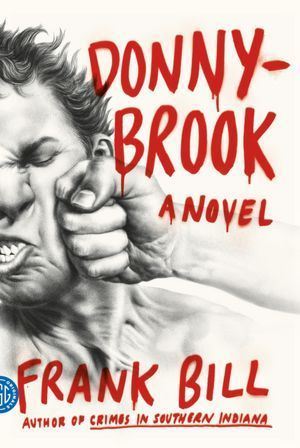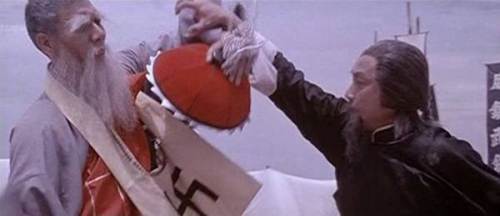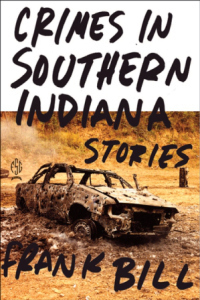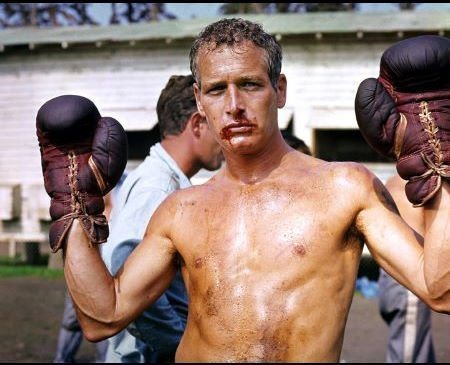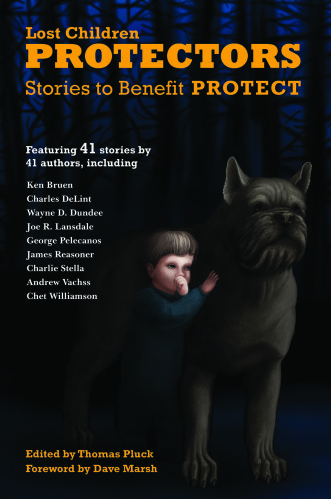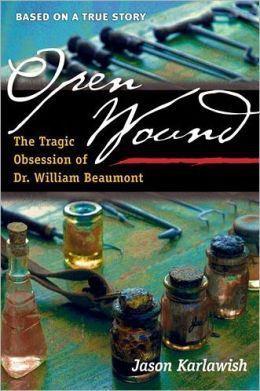Thomas Pluck's Blog, page 48
March 1, 2013
Fresh Kill: Pasion de Mexico
Molcajete – platter for two (or one Salami) with chorizo, sirloin, grilled chicken, avocado, tomato, Mexican cactus, radish, scallions, queso blanco sticks, fresh lime, served with corn tortillas, black beans and rice.
It’s as delicious as it looks and fed this hungry hairy beast for two serious post-workout meals. Highly recommended.
http://www.yelp.com/biz/pasion-de-mexico-caldwell

Tagged: Mexico, New Jersey



LETHAL BUSINESS
I interview W. Soliman about her latest Charlie Hunter thriller, LETHAL BUSINESS, over at The Big Thrill this month.
Tagged: Interviews, The Big Thrill, W. Soliman



February 28, 2013
Belly Up to the Bar with Frank Bill
Frank Bill may need no introduction. His work has graced the pages of Granta and Playboy, Hardboiled and the New York Times. He writes hard-hitting fiction set in his home region, which first collected in his stunning debut of connected stories, CRIMES IN SOUTHERN INDIANA. I had the pleasure of reading his first novel, DONNYBROOK, where he deftly forges a near-mythic tone of hardboiled action with gothic literary sensibility into a gripping story of marginalized people doing their damnedest to claw their way out of the hardscrabble hell of America’s heartland. Centered around the Donnybrook, a sleazy saturnalia of underground bare-knuckle fighting, it reads like gritty action-adventure filtered through the fierce gaze of Flannery O’Connor. I invited Frank to Belly Up to the Bar after meeting him at an event with John Darnielle of the Mountain Goats, where he had a chance to talk fighting, martial arts, and its primal influence on our so-called civilization.
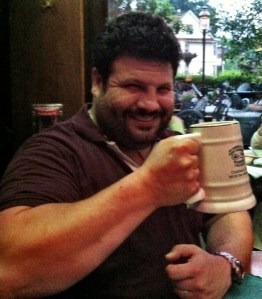 Welcome to Belly up to the Bar, Frank. What are you drinking?
Welcome to Belly up to the Bar, Frank. What are you drinking?
 I didn’t bring you here to flatter you, but you wrote a hell of a novel with Donnybrook. Tell us a little bit about it, and where the title and inspiration comes from.
I didn’t bring you here to flatter you, but you wrote a hell of a novel with Donnybrook. Tell us a little bit about it, and where the title and inspiration comes from.
 FB: Thanks. Basically a few things. Guy I trained with back in the mid 90’s always talked about guys he worked with and they talked about these underground fights in abandoned warehouses and other unknown locations. We never went but it kinda stuck in the back of mind regardless of existence. When I started writing the novel, it didn’t have a name. I knew I wanted to incorporate what I knew about meth/drug culture in general, working class or the struggling class and fighting. My good friend who is a cop said something one day when I was doing research with him when he was shooting the shit with some other cops.
FB: Thanks. Basically a few things. Guy I trained with back in the mid 90’s always talked about guys he worked with and they talked about these underground fights in abandoned warehouses and other unknown locations. We never went but it kinda stuck in the back of mind regardless of existence. When I started writing the novel, it didn’t have a name. I knew I wanted to incorporate what I knew about meth/drug culture in general, working class or the struggling class and fighting. My good friend who is a cop said something one day when I was doing research with him when he was shooting the shit with some other cops.
It was a helluva Donnybrook, he says.
I asked who is Donny Brook?
Not a he, he tells me. An Irish fighting festival.
Hence I looked into it. Then my novel had a name.
 You know there’s a Donnybrook musical, based on The Quiet Man? Back in the ’60s. I’m not sure your novel would translate, but I liked how you put a soundtrack to the action. If you could hand the reader a bunch of CD’s to listen to while reading, who’d be on them?
You know there’s a Donnybrook musical, based on The Quiet Man? Back in the ’60s. I’m not sure your novel would translate, but I liked how you put a soundtrack to the action. If you could hand the reader a bunch of CD’s to listen to while reading, who’d be on them?
 FB: No I didn’t know that. Interesting. CD’s, easy: anything by Ray Wylie Hubbard, Scott H. Biram, The Drive By Truckers, Patterson Hood, Chris Knight, Eagles of Death Metal, Slayer, John Prine, Bob Dylan, Gutherie Kennard, Hayes Carll, Hank III, James McMurtry, Son Volt, Johnny Cash, Lincoln Durham, Lightin’ Hopkins, Slipknot, Pantera, Lucinda Williams, Johnny Dowd, Steve Earle, too many to name. I’m a big music fan.
FB: No I didn’t know that. Interesting. CD’s, easy: anything by Ray Wylie Hubbard, Scott H. Biram, The Drive By Truckers, Patterson Hood, Chris Knight, Eagles of Death Metal, Slayer, John Prine, Bob Dylan, Gutherie Kennard, Hayes Carll, Hank III, James McMurtry, Son Volt, Johnny Cash, Lincoln Durham, Lightin’ Hopkins, Slipknot, Pantera, Lucinda Williams, Johnny Dowd, Steve Earle, too many to name. I’m a big music fan.
 Whoa, hell of a playlist. I loved Son Volt’s first two albums, I have to get more of them. I recall that you have a fighting background in kung fu. And it shows in your fight scenes. They’re brief, vibrant, and realistic. I train in Thaing and Bando, Burmese boxing and grappling. Fu, the Chinese enforcer, was one of my favorite characters. Have you gone past black belt, or tried other styles? And what made you put on a gi in the first place?
Whoa, hell of a playlist. I loved Son Volt’s first two albums, I have to get more of them. I recall that you have a fighting background in kung fu. And it shows in your fight scenes. They’re brief, vibrant, and realistic. I train in Thaing and Bando, Burmese boxing and grappling. Fu, the Chinese enforcer, was one of my favorite characters. Have you gone past black belt, or tried other styles? And what made you put on a gi in the first place?
 FB: I began studying Korean martial arts when I was 11. Earned my black belt by fourteen or fifteen. When I turned 18 I began studying closed door Chinese Kung Fu or Gung Fu as some pronounce it. And there are no belts involved. Just levels. As I progressed in age I left my studies with my first teacher. Cross-trained in western and eastern (Thai) boxing. Dabbled in Ju-Jit-su. Found another closed door kung fu teacher. I started studying martial arts as a kid because I was small. Boney. But had this crazy fascination with the old Shaw Brothers kung fu films.
FB: I began studying Korean martial arts when I was 11. Earned my black belt by fourteen or fifteen. When I turned 18 I began studying closed door Chinese Kung Fu or Gung Fu as some pronounce it. And there are no belts involved. Just levels. As I progressed in age I left my studies with my first teacher. Cross-trained in western and eastern (Thai) boxing. Dabbled in Ju-Jit-su. Found another closed door kung fu teacher. I started studying martial arts as a kid because I was small. Boney. But had this crazy fascination with the old Shaw Brothers kung fu films.
 I want to train with Joe Lansdale down in Texas sometime. His fight scenes are always on the money. But DONNYBROOK is a lot more than fight scenes. You have a real cavalcade of characters, each of whom could break out and have their own novel. And while there’s not an ambiguous ending, it does feel like the beginning of a new adventure. Will we see more of Purcell and Jarhead?
I want to train with Joe Lansdale down in Texas sometime. His fight scenes are always on the money. But DONNYBROOK is a lot more than fight scenes. You have a real cavalcade of characters, each of whom could break out and have their own novel. And while there’s not an ambiguous ending, it does feel like the beginning of a new adventure. Will we see more of Purcell and Jarhead?
 FB: Thanks. Too kind. You’ll see more from the characters in Donnybrook in a follow-up, titled The Salvaged and the Savage with new characters and story lines.
FB: Thanks. Too kind. You’ll see more from the characters in Donnybrook in a follow-up, titled The Salvaged and the Savage with new characters and story lines.
 Great to hear it. Meth carves a swath of destruction through your stories like flesh-eating bacteria. The meth-head has become the new crack-head, a cautionary tale, a lost cause, the walking dead. How hard has it hit your home region, and if you could change one thing about how we deal with it, what would it be?
Great to hear it. Meth carves a swath of destruction through your stories like flesh-eating bacteria. The meth-head has become the new crack-head, a cautionary tale, a lost cause, the walking dead. How hard has it hit your home region, and if you could change one thing about how we deal with it, what would it be?
 FB: Meth has hit my area hard. Not many counties can say they’ve a lawyer who dated a client and started cooking it in their kitchen. It’s worked its way through the heartland. I don’t know what can be done at this point other than to keep educating people about what it does. You can make all the laws you want but it’s almost too little too late. Meth was an issue in this area in the ‘90s but no one paid attention to it.
FB: Meth has hit my area hard. Not many counties can say they’ve a lawyer who dated a client and started cooking it in their kitchen. It’s worked its way through the heartland. I don’t know what can be done at this point other than to keep educating people about what it does. You can make all the laws you want but it’s almost too little too late. Meth was an issue in this area in the ‘90s but no one paid attention to it.
 If you could pick three writers that everyone would have to read in school, who would they be?
If you could pick three writers that everyone would have to read in school, who would they be?
FB: Larry Brown. Ernest Hemingway and Cormac McCarthy.
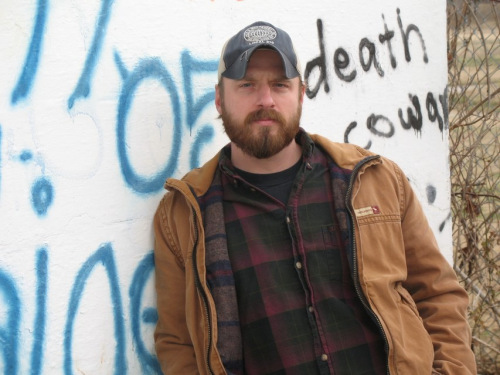
 I heard Larry Brown’s JOE is getting the movie treatment. Maybe that will introduce him to more readers. David Gordon Green’s a hell of a director, too. The memoir piece you wrote for the New York Times–about your grandfather chasing down a deer with a club to put meat on the table–really hit home. I’ve always been a city boy, but my great-uncles are children of the Depression and were avid hunters, long into their eighties. They did what was necessary to provide. It seems like as a culture, we’re losing touch with what it means to be a man. And you explore that tangentially with the three bare-knuckle fighters who converge on the Donnybrook. Do you think boys learning to fight- whether it’s wrestling or kung fu- might give American manhood back its center?
I heard Larry Brown’s JOE is getting the movie treatment. Maybe that will introduce him to more readers. David Gordon Green’s a hell of a director, too. The memoir piece you wrote for the New York Times–about your grandfather chasing down a deer with a club to put meat on the table–really hit home. I’ve always been a city boy, but my great-uncles are children of the Depression and were avid hunters, long into their eighties. They did what was necessary to provide. It seems like as a culture, we’re losing touch with what it means to be a man. And you explore that tangentially with the three bare-knuckle fighters who converge on the Donnybrook. Do you think boys learning to fight- whether it’s wrestling or kung fu- might give American manhood back its center?
 FB: I think every child, male or female should learn to box but also they should learn about or some form of spirituality. Not be a brute or a Buddhist but to learn discipline, how their body operates and how all of this links to the body and mind. For manhood, you have it or you don’t. I was fortunate to be around many great men growing up who been educated by life, but never appreciated my history or where I came from until I got older and began to read and write. A lot of it, for me anyway, comes from how one is raised.
FB: I think every child, male or female should learn to box but also they should learn about or some form of spirituality. Not be a brute or a Buddhist but to learn discipline, how their body operates and how all of this links to the body and mind. For manhood, you have it or you don’t. I was fortunate to be around many great men growing up who been educated by life, but never appreciated my history or where I came from until I got older and began to read and write. A lot of it, for me anyway, comes from how one is raised.
I’m big fan of boxing and MMA and I respect all those involved, those guys and gals have guts and heart and the training they endure, the level at which they strive for is beyond amazing.
 Yeah, you can only get so much discipline from physical training. I was talking with Zak Mucha about this too. We’re working on ways to make ‘manhood’ center around protecting those who need protecting. But any change will be glacial.
Yeah, you can only get so much discipline from physical training. I was talking with Zak Mucha about this too. We’re working on ways to make ‘manhood’ center around protecting those who need protecting. But any change will be glacial.
We tackled music and books, but for the finisher, it’s death row time. What are your last meal, and the last movie you get to watch?
 FB: Last meal. Big ole thick ass Rib-eye, medium-rare. Cesar salad. button sized mushrooms sautéed in butter and soy sauce, fried potatoes with onions/peppers and a half gallon of Pappy Van Winkles. Movie, High Plains Drifter or Cool Hand Luke.
FB: Last meal. Big ole thick ass Rib-eye, medium-rare. Cesar salad. button sized mushrooms sautéed in butter and soy sauce, fried potatoes with onions/peppers and a half gallon of Pappy Van Winkles. Movie, High Plains Drifter or Cool Hand Luke.
 Luke’s a fave for me too. And before you go, what are you working on next?
Luke’s a fave for me too. And before you go, what are you working on next?
 FB: Follow up to Donnybrook and a project I signed on for but can’t announce yet. Thanks for the generous words and having me over.
FB: Follow up to Donnybrook and a project I signed on for but can’t announce yet. Thanks for the generous words and having me over.
DONNYBROOK hits the streets on March 5th, from Farrar, Strauss & Giroux . If you want a fierce read by a hardboiled warrior-poet, a backwoods Breaking Bad meets Bare-Knuckle Brawls with a dash of kung fu and American gothic, get in line for this one. You won’t be disappointed.
Frank Bill blogs at House of Grit . You can follow him on Twitter at @houseofgrit and find his work wherever fine books are sold:
Donnybrook at Indiebound
Crimes in Southern Indiana at Indiebound
Donnybrook at Amazon
Crimes in Southern Indiana at Amazon
“Bill portrays depravity and violence as few others can—or perhaps as few others dare to do . . . The plot builds relentlessly to the final round of the Donnybrook and gives the reader unexpected jolts all the way through . . . Bill is one hell of a storyteller.”
—Kirkus Reviews
Tagged: Donnybrook, Drugs, Frank Bill, Mixed Martial Arts



February 26, 2013
I Believe, from The Book of Mormon
BBC World News reviewed the London stage show of The Book of Mormon this morning, and played the showcase song of the show. I saw it last year with Firecracker, and we loved it. I gave it a full review.
The song does pick on Mormon beliefs, but the show in total is essentially a comedic anthropological take on religion itself, as stories we tell to make tragedy bearable, and is one of the funniest shows I’ve seen in a long time.
Tagged: musicals, The Book of Mormon



February 25, 2013
The Oscars and the Nervous Twitch that isn’t Laughter
I linked to Roxane Gay’s post because she says it in ways I can’t, because her perspective is direct and from a more acute angle, while mine is second or third hand, filtered through empathy.
The Oscars were pretty terrible. I often like Seth MacFarlane, but he looked scared shitless and played it incredibly safe, using jokes that would have been shocking when Dice Clay used them, but today just make us uncomfortable. Not in the way Louis C.K.’s humor makes us uncomfortable, with a hidden truth, but with a self-perpetuated falsehood, that it is okay to say these things, because they garner little nervous snickers. “Did he just say that?” Which is the same flush we get when we think, “Did our friend just say a doody word in front of his MOMMY?”
Seth wasted half the show on self-deprecation meant to let Hollywood know that he’s just as messed up inside as they are. He was great when he embraced what he loved: song and dance numbers and weird cultural references. I thought this show was better than the Franco/Hathaway one, and his jokes weren’t as bad as some of Billy Crystal’s, but Chris Rock and John Stewart managed to pull it off better, in my opinion.
What was worse was that The Onion thought it was funny to call a 9 year old girl a cunt on the biggest day of her life. There was plenty to satirize at the show. The Oscars are almost painful to watch in best of times, because most actors are the pinnacle of validation-hungry self-absorbed performers, something I sympathize with as a writer. Many of them become grotesque avatars of this need for attention, fame and applause. There are plenty of targets, but The Onion had to attack a young girl whose only crime was not acting how we expected, like Honey Boo Boo or some precocious little robot. Idiot reporters called her “Little Q” or “Annie” to her face because learning to pronounce her name was too difficult. They an say “WA KEEN” Phoenix just fine, I noticed.
(Admittedly I called him Joe Quinn Phoenix until he played Johnny Cash and heard his name all the time). Can she just have one night before they try to turn her into the next Honey Boo Boo? Or is that what they truly hated in her, that she seemed unaffected by it all. Flexing her arms like her character did, telling reporters that little kids see things adults can’t sometimes, because they’re not so busy. Not acting like a tiny adult crammed with needs and neuroses, not a barely functional automaton that runs on cocaine and applause?
Not all actors are like that. Ever since Garbo they’ve mocked performers who act like human beings instead of need machines. We want the magic, we desire the spectacle. And we’ll tear you apart with our teeth if you don’t play along.
That said, I’m glad Life of Pi won a handful. It was a beautiful film in a sea of reboots, remakes and safe bets. Argo, despite its veracity problems, was well made and a good story. I wish The Invisible War, about rape in the military, had won best Doc. But like Errol Morris’s excellent Standard Operating Procedure, about our use of torture, it was a truth too painful to bear.
I hope after the Oscars, the Onion tweeter and Seth went over to Octavia Spencer’s house for cake.
Tagged: C Word, Oscars, Quvenzhané Wallis, Roxane Gay, Seth MacFarlane, The Onion



February 23, 2013
Buy Protectors, and I’ll buy a new book for Paterson’s new library
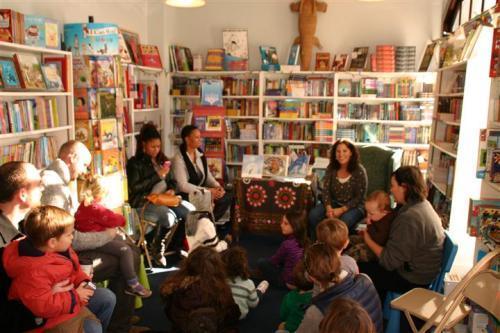
photo by Jenny Milchman
My favorite local indie bookstore, Watchung Booksellers, is carrying Protectors: Stories to Benefit PROTECT in trade paperback. (You can also buy it for the Kobo e-reader through their store).
Two years ago, the city of Paterson lost a branch of their library to Hurricane Irene. It hasn’t been rebuilt yet, due to flood zone issues. So there is a campaign to donate new and gently used books to the children of Paterson until their library is rebuilt.
Coincidentally, Watchung Booksellers has a great children’s book section. See where I’m going?
If you buy Protectors: Stories to Benefit PROTECT through Watchung Booksellers mail-order, I will donate a new children’s book (of your choice, if you’d like) that I will purchase from Watchung Booksellers, and drop off at the donation point at The Montclair Times newspaper. So you’ll be helping two causes- the kids of Paterson, and the kids of America, because 100% of the proceeds benefit PROTECT, the National Association to Protect Children. It has several exclusive stories, including my near-novella size “Black Shuck and the Summer of Blind Joe Death,” and stories by Andrew Vachss, James Reasoner, Joe Lansdale, Ken Bruen, George Pelecanos, Johnny Shaw, Patti Abbott, Roxane Gay (who has a story in The Best American Short Stories of 2012), Tony Black, Wayne Dundee, Charlie Stella, Dan O’Shea… and 30 more.
Simply buy the book online or go to the store. Use my Contact Form to email me and send the receipt, and the title of the children’s book you’d like me to buy. I’ll take a photo of it and send you the receipt, and kids in Paterson will have great books to read, you’ll have 41 great stories to read, and PROTECT will have more cash in their coffers to fight child abuse.
They also carry Lost Children: A Charity Anthology. Buy that as well, and I’ll donate two books.
So, are you in? If you can’t buy the book, spread the word. And thank you!
Tagged: Child Abuse, PROTECT, Protectors Anthology, Watchung Booksellers



February 20, 2013
Song in my Head: Kurgan’s Theme by Queen
Queen composed two soundtracks for cheesy ’80s movies that I adore and champion despite their myriad flaws. The first is FLASH (Ah-AAAH!!) Gordon, a terrific remake of the old serial. Thanks to classic performers Max von Sydow, Topol, Brian Blessed, Timothy Dalton, and Peter Wyngarde, it rises above the awful beef/cheesecake leads. And the amazing soundtrack keeps it centered.
The other film is HIGHLANDER, which is a running joke in many circles. Where do they hide those swords? Sean Connery is a Scot playing an Egyptian with a Spanish surname carrying a Japanese sword, and Frenchman Christopher Lambert plays the Scotsman. It’s hilarious and bizarre and you really shouldn’t care. The sequels can be safely ignored (WHAT sequels? LA LA LA) but the original is simply one of the best B pictures of the ’80s, better than the ninja flicks and anything by Chuck Norris. It wants to be Blade Runner, but it’s incredibly silly and just runs with it.
Clancy Brown as the Kurgan is an inspired performance, and the over the top swordplay, goofing on Cannon Group fanboys- Kurgan takes out a gun nut with a MAC-10 who plays vigilante, the film begins at a pro wrestling match- it really has a lot to offer and I’ve watched it countless times.
And this song is one of the best. “Princes of the Universe” is a close second. The entire Queen soundtrack is fantastic. This is where “Who Wants to Live Forever?” comes from. If you haven’t seen it, I’d suggest drinking yourself into a 13 year old’s mental faculties first, and buying a Nerf broadsword to flail around as you cheer the immortals in their quest for the ultimate power.
Tagged: Christopher Lambert, Clancy Brown, Flash Gordon, Highlander, Queen, Sean Connery



February 15, 2013
Orson Scott Card and Superman
I was going to post about food today, but this is too good not to re-blog and share. From author Ed Kurtz.
Orson Scott Card and Superman.
Tagged: Comic Books, Ed Kurtz, Gay, Humor, Orson Scott Card, Superman



February 14, 2013
Belly Up to the Bar with Jason Karlawish
I met Jason Karlawish at a book event for Frank Bill. He’s a physician and the author of Open Wound: The Tragic Obsession of Dr. William Beaumont, based on true events which occurred on the American frontier. Jason teaches medicine, medical ethics, and health policy, and writes frequently about these issues and how they affect us. Voting rights and the elderly. Patenting genes and medical discoveries such as biomarkers. I invited him to put his suede-patched elbows on the mahogany over a drink to chew the fat about all these things.
 TP: Welcome to Belly Up to the Bar, Jason. What can I get you?
TP: Welcome to Belly Up to the Bar, Jason. What can I get you?
 TP: Then I’ll pour you an Abita Turbodog. Now, let’s talk about OPEN WOUND. As a fan of weird history, I’d heard of the tale of Dr. Beaumont and his patient. Would you recount it for our readers?
TP: Then I’ll pour you an Abita Turbodog. Now, let’s talk about OPEN WOUND. As a fan of weird history, I’d heard of the tale of Dr. Beaumont and his patient. Would you recount it for our readers?
 JK: Yes, this is weird history. In June of 1822, on the remote Mackinac Island, a young French Canadian fur trapper named Alexis St. Martin was at the wrong end of an accidental shotgun blast in the American Fur Company Supply Store. He suffered a horrible wound that opened up a hole into his chest and stomach, exposing lung and spilling out his morning meal, but Alexis was a fortunate young man. Dr. William Beaumont, the island’s only physician, came to his aid. Beaumont, an assistant surgeon in the US army, had experience with gunshot wounds from his service as a surgeon’s mate in the War of 1812. Alexis survived.
JK: Yes, this is weird history. In June of 1822, on the remote Mackinac Island, a young French Canadian fur trapper named Alexis St. Martin was at the wrong end of an accidental shotgun blast in the American Fur Company Supply Store. He suffered a horrible wound that opened up a hole into his chest and stomach, exposing lung and spilling out his morning meal, but Alexis was a fortunate young man. Dr. William Beaumont, the island’s only physician, came to his aid. Beaumont, an assistant surgeon in the US army, had experience with gunshot wounds from his service as a surgeon’s mate in the War of 1812. Alexis survived.
But after months of slow but certain recovery, he was left with a deforming injury: a hole into his stomach. Unless Dr. Beaumont kept the hole plugged with a wad of lint, whatever Alexis ate or drank – this pint of ale, for instance – spilled out.
Something happened. Dr. Beaumont came to see his patient as someone, something, that was different than simply a patient well-cared for. His wound became a kind of frontier to explore. Although Beaumont had no training in research, no expectation to do research, he recognized that his patient’s wound was the object of his success. He could study gastric digestion and, in doing so, advance science and also a career that, to date, had been marked by hard work but small rewards. What follows is Dr. Beaumont’s tragic obsession and one of the oddest doctor-patient relationships.
Open Wound is a novel but it’s based on true events — sort of Blood Meridian meets The Immortal Life of Henrietta Lachs.
 TP: I can see why you were drawn to this one. It sounds like something that couldn’t happen today. Could it? Or would the poor fella with the hole in his gut be patented by Big Pharma?
TP: I can see why you were drawn to this one. It sounds like something that couldn’t happen today. Could it? Or would the poor fella with the hole in his gut be patented by Big Pharma?
 JK: Today, in the US, I doubt a person would suffer such a permanent hole in his side. And yet, patients remain the source of great profit. A patient with a gene or protein or tissue that has value is like gold and the scientists who discover that value will transform it into property and they will “monetize” it. Don’t you love that word?
JK: Today, in the US, I doubt a person would suffer such a permanent hole in his side. And yet, patients remain the source of great profit. A patient with a gene or protein or tissue that has value is like gold and the scientists who discover that value will transform it into property and they will “monetize” it. Don’t you love that word?
 TP: Soon we’ll all be monetized, and told to like it. It makes me wonder if we’ll see health insurers asking patients to surrender their rights to any discoveries made with their DNA or their cells before treatment, someday. What dangers do you foresee for patients in the coming years?
TP: Soon we’ll all be monetized, and told to like it. It makes me wonder if we’ll see health insurers asking patients to surrender their rights to any discoveries made with their DNA or their cells before treatment, someday. What dangers do you foresee for patients in the coming years?
 JK: In fact, right now, patients have no claim to ownership of discoveries made from their tissues. The courts have weighed in on that. The “bios” is the new frontier for ownership and profit. Just as American land was in the 19th century.
JK: In fact, right now, patients have no claim to ownership of discoveries made from their tissues. The courts have weighed in on that. The “bios” is the new frontier for ownership and profit. Just as American land was in the 19th century.
What is interesting is how the courts are starting to push back on patents on discoveries of nature, such as claims to own genes or proteins that categorize people into states of risk. The courts recognize that no one can own a law of nature. Not the person in whom that law was observed and not the person who observed the law. Prometheus discovered fire, he did not invent it. No patent there. Just the punishment for stealing it from the gods.
 TP: You’ve also written about treating dementia. Which next to ALS (Lou Gehrig’s disease) is the ailment which terrifies me the most. Are the treatments promising? I’ve had several relatives with dementia, but their doctors never recommended treatment. It’s still seen as a side effect of aging. Will this reach epidemic proportions, with our growing lifespan?
TP: You’ve also written about treating dementia. Which next to ALS (Lou Gehrig’s disease) is the ailment which terrifies me the most. Are the treatments promising? I’ve had several relatives with dementia, but their doctors never recommended treatment. It’s still seen as a side effect of aging. Will this reach epidemic proportions, with our growing lifespan?
 JK: I’ve done a lot of essay writing on this and some of that is on my website www.jasonkarlawish.com. The most common cause of dementia is Alzheimer’s disease and the longer we live, the more likely we are to get it, especially after age 70. In this last century, developed nations such as the U.S. and Japan have experienced an increase in life span that is without precedent. The result? We have more people living more years, which means more people with brain failure because of Alzheimer’s disease.
JK: I’ve done a lot of essay writing on this and some of that is on my website www.jasonkarlawish.com. The most common cause of dementia is Alzheimer’s disease and the longer we live, the more likely we are to get it, especially after age 70. In this last century, developed nations such as the U.S. and Japan have experienced an increase in life span that is without precedent. The result? We have more people living more years, which means more people with brain failure because of Alzheimer’s disease.
The funny thing about the epidemic is that we have some control over how big it is. That control depends on how we define it. If we say that older adults who have essentially normal cognition but a brain scan that shows Alzheimer’s pathology, that they have Alzheimer’s disease, then we can overnight explode the prevalence of the disease.
The more we know about Alzheimer’s, the less we understand. I am, for example, fascinated by studies that show how most brains of persons who are demented have, not only the characteristic plaque and tangle pathology of Alzheimer’s disease but they also have other pathologies, or how as many as a third of persons with Alzheimer’s dementia don’t in fact have detectable plaque on brain scans.
We’re likely dealing with many diseases here and so we’re in for a long march to discover an effective treatment.
 TP: Writing historical fiction seems a different tack for a physician. Thrillers seem to be the norm, though Josh Bazell’s fiction defies easy description (other than “awesome”) and Glenn Gray uses his medical knowledge to springboard into the unique and bizarre. Medical history is fertile ground for ideas. What do you see in your writing future?
TP: Writing historical fiction seems a different tack for a physician. Thrillers seem to be the norm, though Josh Bazell’s fiction defies easy description (other than “awesome”) and Glenn Gray uses his medical knowledge to springboard into the unique and bizarre. Medical history is fertile ground for ideas. What do you see in your writing future?
 JK: I’m fascinated with how risk is transforming medicine. The doctor patient relationship is moving from the bedside of the sick patient, to the desktop of the client at risk. I see these events as part of a larger story of what I call “actuarial capture” – the quant boys and girls rule the world. Look what they did to American banking and finance. They almost took down the world’s economy. So I’m working on a story about all this. It’s a dark comedy that starts something like this….
JK: I’m fascinated with how risk is transforming medicine. The doctor patient relationship is moving from the bedside of the sick patient, to the desktop of the client at risk. I see these events as part of a larger story of what I call “actuarial capture” – the quant boys and girls rule the world. Look what they did to American banking and finance. They almost took down the world’s economy. So I’m working on a story about all this. It’s a dark comedy that starts something like this….
America’s greatest industry, healthcare, has collapsed and the news reports give the angry and confused residents gathered in the Fox Run Retirement Community’s Commons Room someone to blame—Doctor Apsara Everett, a Vietnamese-American refugee turned celebrity physician—but what the news does not report, yet, is that one of their fellow Fox Run residents, the quiet and solitary Doctor Robert Fane, is her father, and that why her career crashed and Fane family fell apart are part of a larger story of the corruption of American medicine, freedom, and a nation seduced by risk and numbers.
 TP: I like dark comedy, and I think anyone who deals with our health care system would love to read about the reality behind the mess we see as the final consumer. Okay, Jason. Death row time. Or, terminal disease in your case, Doc. The end is near. Pick a book, a movie, an album and a last meal.
TP: I like dark comedy, and I think anyone who deals with our health care system would love to read about the reality behind the mess we see as the final consumer. Okay, Jason. Death row time. Or, terminal disease in your case, Doc. The end is near. Pick a book, a movie, an album and a last meal.
 JK: So many titles to pick from – Blood Meridian, Lolita, Let the Great World Spin — but I think I’ll go with the book that has stayed with me the longest. Why? That means the book still has something to say to me. A good book speaks to you, changes you. A great book keeps on doing that. It’s a relationship. I’ll read, yet again since I first read it in college, some 25 years ago, Flaubert’s Sentimental Education. Yes, it’s a stepchild to his “best seller” Madame Bovary, but it’s captivating tale of young men and women, free and able to make of their lives as they desire, and yet failing miserably at it.
JK: So many titles to pick from – Blood Meridian, Lolita, Let the Great World Spin — but I think I’ll go with the book that has stayed with me the longest. Why? That means the book still has something to say to me. A good book speaks to you, changes you. A great book keeps on doing that. It’s a relationship. I’ll read, yet again since I first read it in college, some 25 years ago, Flaubert’s Sentimental Education. Yes, it’s a stepchild to his “best seller” Madame Bovary, but it’s captivating tale of young men and women, free and able to make of their lives as they desire, and yet failing miserably at it.
I’ll take a break from this uplifting tale and to listen to Radiohead’s In Rainbows or watch anything by the Cohen brothers and nibble just a few cheese crackers while I drink—yes, I’m lovin’ this ale—but I’ll go out with a case of Chateauneuf-du-Pape.
 TP: Thank you for dropping by, Jason. Open Wound sounds fascinating, and I look forward to your next.
TP: Thank you for dropping by, Jason. Open Wound sounds fascinating, and I look forward to your next.
Tagged: Ethics, History, Jason Karlawish, Medicine, Open Wound, Science, Weird History



February 12, 2013
Man with a Harmonica
I first heard Apollo 440′s remix of Ennio Morricone’s classic “Man with a Harmonica” over the end credits of a great Sopranos episode, “Whoever Did This,” when we begin to see Tony’s veneer of humanity begin to crack.
The original song is the theme to one of the best westerns ever made, Sergio Leone’s Once Upon a Time in the West. I was thinking about it after reading Wayne Dundee’s excellent review of the film. It is Leone at the top of his form, and Harmonica is one of the great characters of cinema, and perhaps Charles Bronson’s greatest role. Frank, the evil sonofabitch played by Peter Fonda, may be one of Fonda’s best as well. It’s certainly the one that plays against type.
The film is over two hours long, but worth every second. Each time you hear this theme play, Leone teases us with a blurry memory of a young boy faced with pure evil. Seeing who this young man becomes, and how he finally puts an end to a lifetime of pain, is one of the great catharses in western storytelling.
And this song is stuck in my head this week. The mournful tone evokes an inner sadness at the red-claw brutality of life on this Earth, and our endless struggle to rise above it. It speaks of the sadness of a young boy who feels responsible for his older brother’s agonizing death, and his long road to vengeance.
All with a harmonica and a lungful of air.
Tagged: Charles Bronson, Ennio Morricone, Once Upon a Time in the West, Peter Fonda, Sopranos, Wayne Dundee, Westerns



Thomas Pluck's Blog
- Thomas Pluck's profile
- 122 followers


